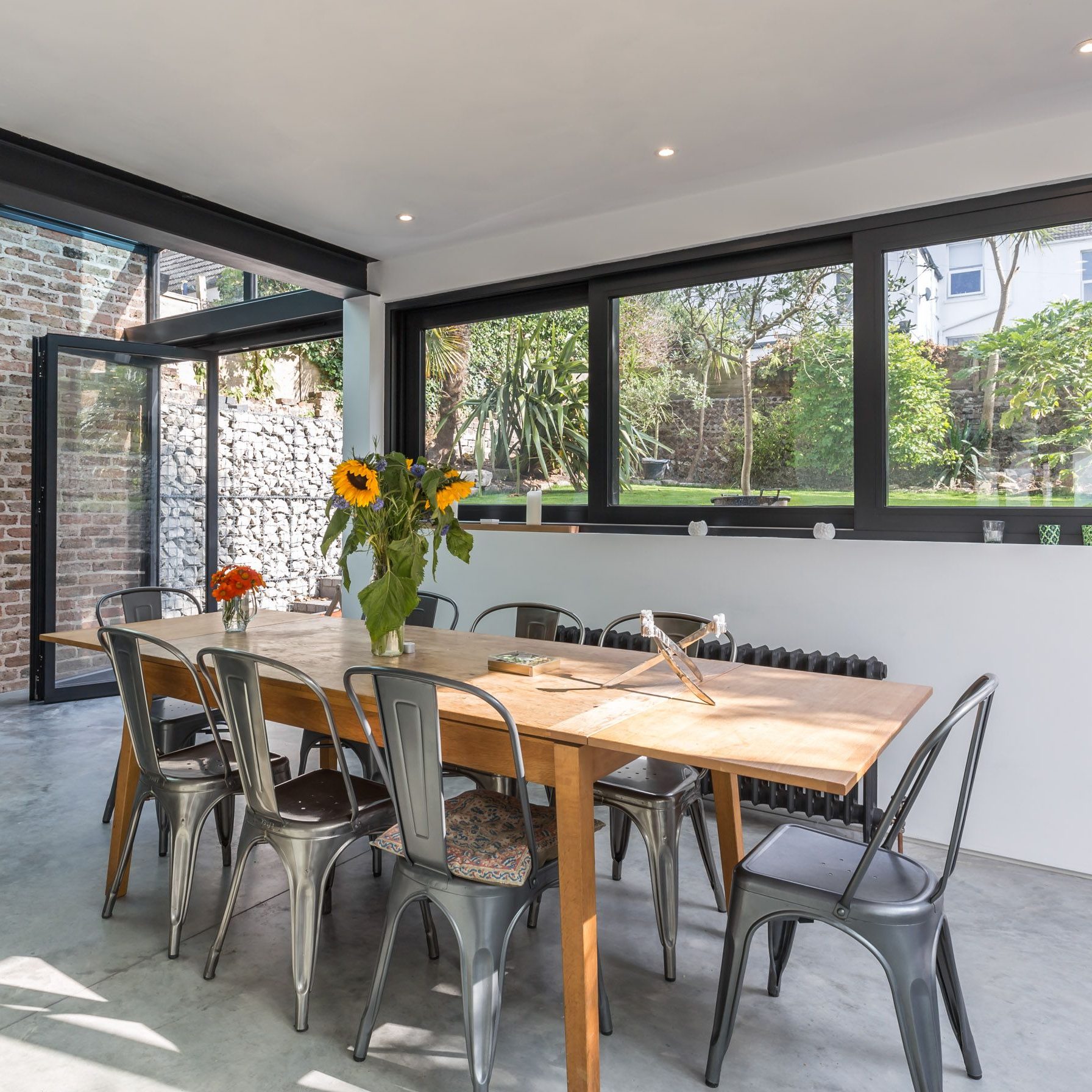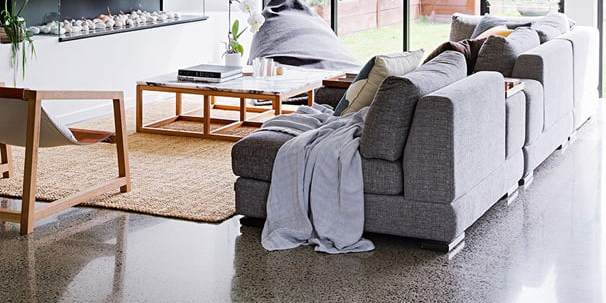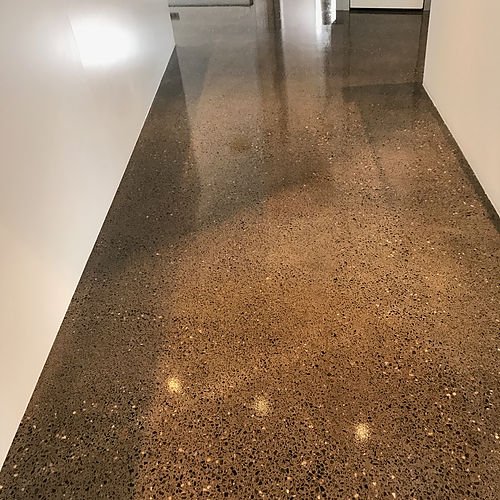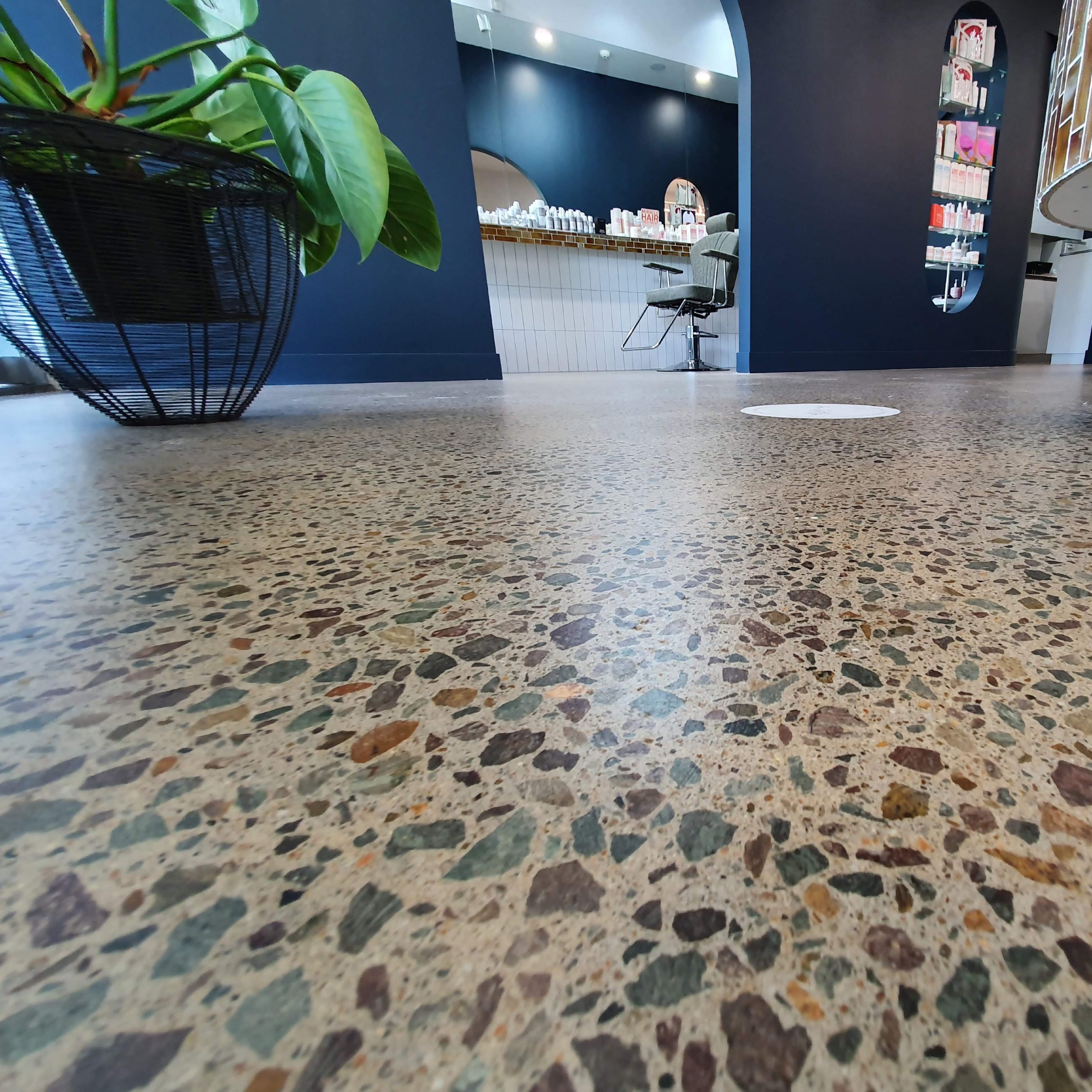Residential Polished Concrete
A commercial kitchen floor that is properly installed is essential to ensuring that food is produced efficiently.
THE COMMERCIAL KITCHEN
COMMERCIAL COATINGS EXPLAINED
The kitchen is notorious for being hot, wet, and potentially dangerous. It is not unusual to see chefs moving hot items in front and behind others; line cooks cutting and dicing with razor-sharp knives, and cleaning teams using suds and oils that make things slippery. Each of these core functions needs to have the confidence to move about without worrying about slipping or damaging the floors.
A commercial kitchen floor that is properly installed is essential to ensuring that food is produced efficiently. The truth is, it is sometimes down-weighted as a priority and is addressed at the conclusion of a build in order to ensure compliance. Truth be told, if you are thinking ahead, you might spend less than you expect on your flooring and definitely save money in the medium and long term – not just in maintenance costs, but also with insurance.
FOOD SAFETY STANDARDS
Food safety standards such as HACCP, AQIS, BRC and ISO 9000 require hygienic and durable flooring solutions in commercial kitchens and food processing areas. Epoxy resin is slip-resistant and highly durable making them perfect for commercial flooring solutions.
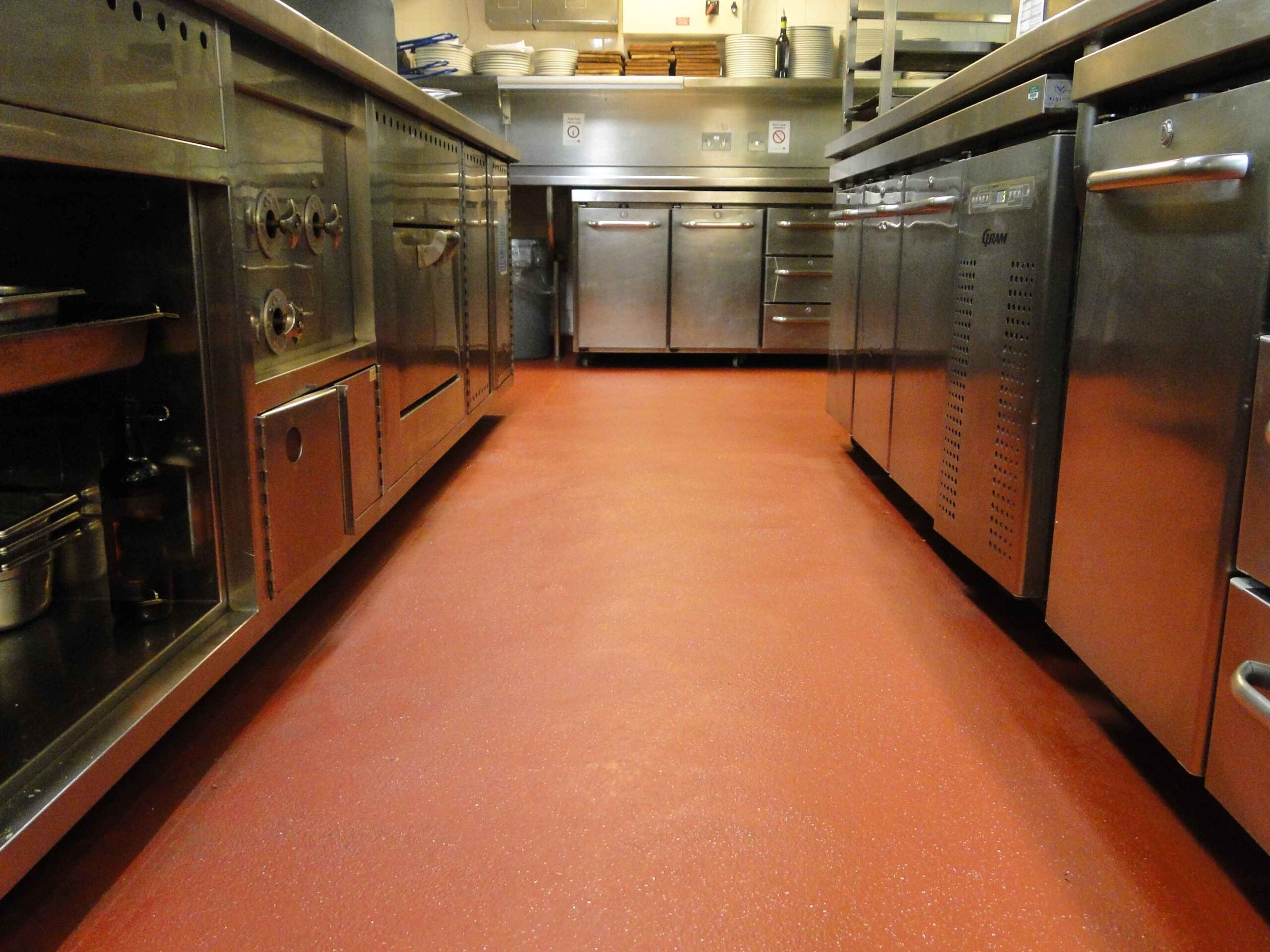
High performance Kitchen Flooring
Flooring Coating Types
Polyurethane Cement and Epoxy Flooring
Commercial kitchen floors need to offer the best possible performance regarding hygiene, safety, longevity and durability.
There is no doubt that epoxy resin flooring outperforms all other options
Commercial kitchens, food processing plants, as well as automotive factories, use resin flooring. Food processing and handling areas benefit from their high levels of hygiene, ease of maintenance, and ability to withstand considerable wear and tear. As epoxy flooring is slip-resistant, it also assists in adherence to OHS regulations and is a great option to protect staff.
There are two main resin flooring options:
Follow the links to learn more about each of them.
COMMERCIAL KITCHEN FLOORING
WHAT YOU NEED TO CONSIDER
Ease of Cleaning & Anti-Slip – On a practical level, commercial kitchen flooring must be easy to clean in order to provide excellent hygiene standards. To reduce the risk of workplace accidents, it must also possess significant anti-slip properties.
Longevity – Commercial kitchens are busy places. Floors are regularly subjected to spillages of things like fats, oils, grease, detergents and acids. Combined with the heavy foot traffic, flooring has to offer extreme durability to handle these highly demanding environments.
Easy Install & Repair – Finally, you will need to take into account both the installation process as well as maintenance and repairs of the kitchen flooring solution.
Contact one of our flooring experts to help guide you through what would be the best solution for your commercial kitchen floors.

